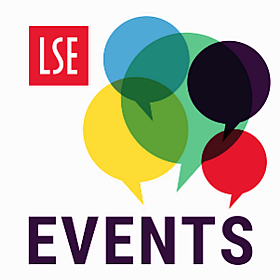
Cobalt rush: raw materials and the transition to net zero
28 November 2024 - 37 minsContributor(s): Quentin Noirfalisse, Dr Richard Perkins, Anneke Van Woudenberg | The decarbonisation of the transportation sector is a vital component in achieving the goals set out in the Paris Agreement. Consequently, governments around the world are pushing forward the transition away from combustion engine to electric vehicles. However, the production of electric vehicles necessitates the use of raw materials, such as cobalt. The movie sheds light into the human and environmental consequences of mining cobalt. Further, the mineral deposits on land are highly concentrated in just a few countries, making their global availability dependent on trade relationships and vulnerable to supply di...

Amartya Sen and Ngozi Okonjo-Iweala in conversation with Nick Stern: building sustainability in a turbulent world
Contributor(s): Dr Ngozi Okonjo-Iweala, Professor Amartya Sen, Professor Lord Stern | Join us for this special event celebrating LSE's new Global School of Sustainability at which our speakers will discuss fostering sustainability amidst global uncertainty
1 hour 28 mins
10 June Finished

Economic nationalism and global (dis)order
Contributor(s): Professor Robert Falkner | Join us for this year's Martin Wight Memorial Lecture which will be delivered by Robert Falkner who will explore the rise of economic nationalism amidst growing geopolitical rivalry. The lecture will be based on his new co-authored book, The Market in Global International Society: An English School Perspective on International Political Economy.
1 hour 24 mins
9 June Finished

Feminism, anti-feminism and affective economies of rage
Contributor(s): Professor Sarah Banet-Weiser, Professor Angela McRobbie | In this event Sarah Banet-Weiser will theorize “mirror worlds” as an apt metaphor for the contemporary political and cultural feminist landscape. The concept of mirror worlds captures the ways in which reactionary digital politics seeks to mimic feminist politics - but also how it distorts and distracts, with the aim of confusing, splintering and weakening feminism. Within digital media culture in recent years, we have seen the rise of diverse reactionary formations which mirror feminist language, concepts and analyses, marshalling them for anti-feminist ends; these include popular misogynists, ‘manfluencers’, and ‘red-pilled’ manosphere groups such as incels, pick-up artists and male separatists. More recently, a diverse range of female-centric groups and influencers, from tradwives to ‘dark feminine’ influencers to so-called ‘reactionary feminists’ have begun to mirror the reactionary and bio-essentialist logics of the manosphere: a reflection of a reflection.
1 hour 28 mins
5 June Finished

A new data infrastructure for the social sciences?
Contributor(s): Professor David B Grusky | The social sciences rely heavily on legacy data systems conceived to meet challenges of the 20th century (and earlier!). Is this the moment to build a new data system that meets new challenges and exploits new types of technology and data? The purpose of this talk is to sketch out this radical vision, how it might be realized, and the risks that it would entail.Featured image (used in source code with watermark added): Photo by Google DeepMind via Pexels: https://www.pexels.com/photo/an-artist-s-illustration-of-artificial-intelligence-ai-this-image-was-inspired-neural-networks-used-in-deep-learning-it-was-created-by-novoto-studio-as-part-of-the-visualising-ai-proje-17483873/
1 hour 26 mins
4 June Finished

Fixing education for the AI age
Contributor(s): Conrad Wolfram | The recent prominence of AI has exposed major deficiencies in education. Not only how much improvement can be made in the pedagogical process with modern technology, but also how the subject-matter has diverged from what's needed in the real world. Maths education has been at the epicentre of this mismatch: required of all, seen as central to the future, yet without reformation for the technology revolution that has elevated it to such importance in society. Conrad Wolfram will explain what the problem is, how we fix it and his group's pioneering work to rebuild the curriculum to achieve "computational literacy for all". He will go further: explaining how failures in maths education should forewarn us of actions needed across the curriculum as we enter the AI age, and technology transforms our world.Featured image (used in source code with watermark added): Photo by MART PRODUCTION via Pexels: https://www.pexels.com/photo/a-person-with-curly-hair-using-vr-headset-8471958/
1 hour 27 mins
3 June Finished

Tolerance and freedom of expression
Contributor(s): Professor Peter Godfrey-Smith | Join us for the Sir Karl Popper Memorial Lecture which will be delivered by Peter Godfrey-Smith who will speak about tolerance and the freedom of expression. Karl Popper suggested that tolerance in political contexts can be self-defeating. “Unlimited tolerance must lead to the disappearance of tolerance,” he said, because it allows intolerance to flourish and take over. He called this the “paradox of tolerance.” One important kind of tolerance relates to the expression of controversial ideas. Using a framework for understanding tolerance developed with Ben Kerr, Peter Godfrey-Smith will discuss problems raised by toleration of the intolerant, especially around questions of speech and expression. The framework itself doesn't dictate policies, but combined with other arguments it can provide support for a "classic liberal" treatment of free expression, where some protection is afforded to the expression of unpopular views. The framework eliminates the appearance of tension or "paradox" in some liberal combinations of attitudes.Featured image (used in source code with watermark added): Photo by Lara Jameson via Pexels: https://www.pexels.com/photo/person-holding-white-and-black-megaphone-8898633/
1 hour 28 mins
2 June Finished





















